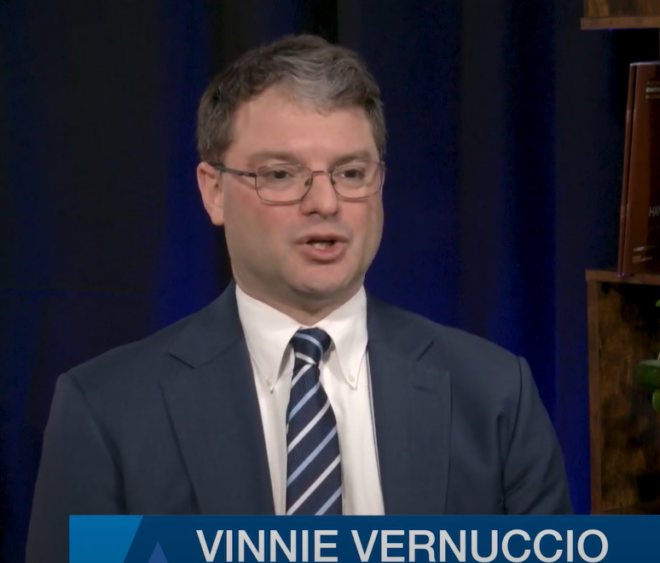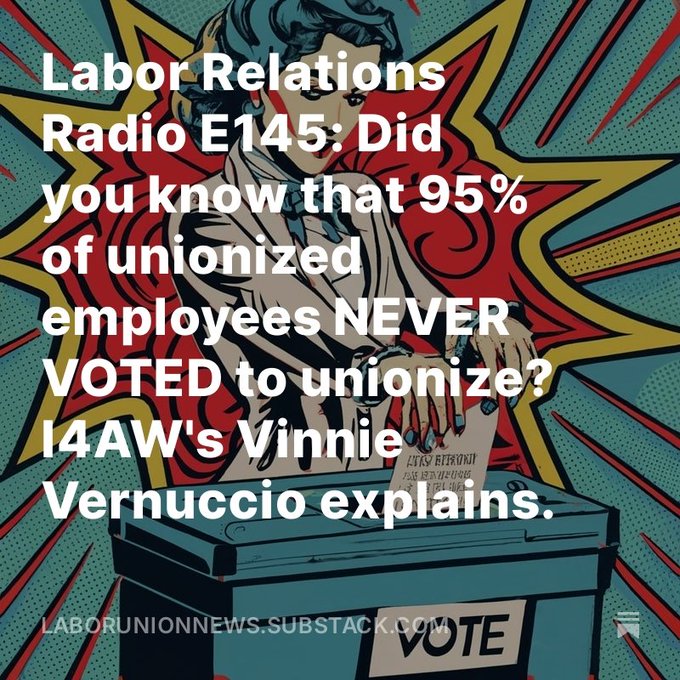Posts tagged PRO Act
Feeding the Kitty
September 30, 2024 // Unions have pursued shareholder resolutions asking for a “free and fair election process,” meaning card check and neutrality. They have also sought to pass resolutions demanding audits of a company’s labor practices. It’s not hard to see how a future resolution could explicitly try to prohibit companies from using independent contractors.
The real impact of the Teamsters’ non-endorsement
September 20, 2024 // “Union endorsements are valuable because they usually come with access to resources, particularly volunteers to knock on doors and work phone banks,” Squire said. “Leadership may be able to persuade some members to vote the way they would like, but the real value is in campaign assistance.” Besides the setback of having fewer volunteers, there’s also some possibility that the non-endorsement could sway non-union voters sympathetic to labor issues.
Employment Law Landscape Could Change After Election
September 16, 2024 // During the Trump administration the NLRB majority narrowed the scope of the National Labor Relations Act in several key respects and established a more neutral approach to union organizing. The Biden/Harris administration, which styled itself as the “most union-friendly in history,” reversed virtually all of the Trump-era policies, significantly expanded the scope of the law, and tilted the organizing landscape in favor of organized labor, Hayes said.

Interview: Independent Contractors and Union Reforms, How @VinnieVernuccio Champions Worker Choice
September 12, 2024 // Unions are stuck in this turn of the last century industrial revolution, a one-size-fits-all adversarial business model that most workers today don't want. I do see a place for unions if they embrace a voluntary business model and become like professional service organizations. Unfortunately, they're not there. If you're under a union contract, you're stuck with the wages, the benefits, the vacations, [and] the hours they negotiate for you. It's actually impossible for the employer to unilaterally say, “you're doing a great job, I'm going to give you a raise,” or “I'm going to give you a bonus,” or, “hey, you want more vacation for a little less money?”

Just 5 percent of private sector workers voted for their unions
September 12, 2024 // There are 7.4 million unionized private sector workers according to the Labor Department. Just under 5 percent of those workers voted in favor of the union that represents them according to an analysis of department data by the nonprofit Institute for the American Worker, a free market think tank. The vast majority of those workers joined workplaces that were already organized and have had to accept the union to keep their job. The workers almost never get a chance to weigh in themselves. The National Labor Relations Act (NLRA), the federal law covering union activity, does not require that a union ever have to reaffirm that it has the workers’ support once it is recognized. This is true even if none of the workers who originally voted for the union are still around.
Commentary: The Rise of “Pro-Labor” Conservatism
September 9, 2024 // Yet O’Brien’s move has attracted the attention of commentators from both sides of the political spectrum who see it as a bellwether. It is what conservative commentator Sohrab Ahmari has called a “brave gambit” and veteran labor reporter Steven Greenhouse dubbed a “huge gamble.” “A glacier of hostility has divided the GOP from organized labor for two generations,” Ahmari wrote in Compact. But the Teamsters president “took a pickaxe to that glacier” by speaking at the RNC. Ahmari attributes the rise of this strain of pro-labor, anti-union conservatism to Senator Josh Hawley (R-MO), a MAGA firebrand who has come out as perhaps the lone GOP senator to oppose right to work legislation, the anti-union laws on the books in 28 states.

Labor Relations Radio E145: Did you know that 95% of unionized employees NEVER VOTED to unionize? I4AW’s Vinnie Vernuccio explains.
September 4, 2024 // As Americans, every two, four, or six years, we head to polls to cast our ballots for who we want to represent us. For unionized workers in the private sector, the vast majority never voted to unionize. According to a new study [in PDF] by the Institute for the American Worker (I4AW), 95 percent of private sector union workers under the National Labor Relations Act (NLRA) are represented by a union they have never voted for.
Op-Ed: Kamala Harris aims to screw workers AND businesses to help Big Labor bosses
September 2, 2024 // Yet on issues of labor, no speculation is needed: Harris has consistently, loudly and unequivocally advocated for policies that grant union officials unprecedented control over both workers and their pocketbooks. Most notably, the union-label Harris has repeatedly expressed support for the repeal of every state Right to Work law in the country.
Union members aren’t just voting on labor this year
August 27, 2024 // She believes Harris can deliver for her and fellow union members, calling the Democratic nominee a “breath of fresh air” for whom she’s canvassing alongside UNITE HERE colleagues. Gangwer, meanwhile, said he has struggled to grapple with recent inflation. He pushed off “must-do’s” on his home, like a partial roof replacement, because it’s too expensive. His co-workers have become more willing to vote for Republicans in recent years, he said, citing the party’s commitments to cut taxes and an emphasis on law and order.
Op-Ed: Bye Bye Right to Work?
August 25, 2024 // We believe the labor laws should be rewritten in such a way that nonunion workers are exempt from collective bargaining agreements and only dues-paying union members would be covered by union contracts. This would solve the free-rider problem that union officials justifiably complain about – and everyone’s freedom to choose is protected.
